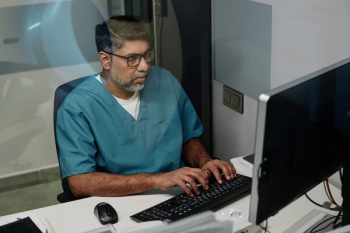
My Escape from a Black Pearl
When the medical knowledge you’ve learned begins to tarnish – or turn out to be downright wrong.
Remember back when you were in residency training, you'd intermittently hear about receiving “pearls” from your attending physicians? Useful little nuggets of wisdom that would serve you time and time again throughout your career?
What's that? You're not a physician, or have yet to go through residency? I never really did have a sense of the credential demographics of my readership…. Well, take my word for it. Residents paying any sort of attention will glean pearls from mentors over the course of their training. If one comes along and you fail to pick up on it, it's a lost opportunity. The knowledge is still out there, but now you'll have to learn it the hard way…books, articles, etc., instead of a gift-wrapped moment of “See this? It’s valuable. Remember it.”
Maybe this isn't the case in top-flight residencies, where one attending physician is more brilliant than the next and there are no duds...but my institution's staff included some mere mortals with feet of clay. Not all of them were flawless founts of knowledge. Still, most of them tried, and I can't really blame them for occasionally passing along a pearl which turned out to be, well, wrong. Residents had a word for such wolf-in-sheep's-clothing false wisdom: Black pearls.
You see, it's bad enough when you learn something that's factually wrong. Psychology being what it is, we tend to cling (often unreasonably) to the first thing we heard on a given topic, resisting all evidence of its wrongness we might subsequently encounter. It takes us that much longer to recognize and accept the truth, sometimes even after it's smacked us in the face a few times. Now, reinforce the strength of that wrong first impression by the respect with which we might hold a mentor (proven wise in any number of other ways) who gave us that false bit of knowledge.
A black pearl isn't necessarily to be held against the mentor who gave it to us. People don't know what they don't know, and they surely have every bit of faith in the pearl for their own use. Maybe they originally learned it wrongly, themselves...or maybe it had been recognized truth when they first adopted it, and subsequently it was disproven. Science being a work in progress, there's always new information coming along.
I once wrote in this column about a wise attending who had observed that the typical medical "fact" seemed to have a half-life of about 10 years, meaning that after you'd been practicing a couple of decades you might find that only a quarter of what you'd learned in med school was still considered to be correct. Thus, a shiny white pearl you learn today might gradually darken until it's a black pearl when, one day, you proudly pass it on to a trainee.
Case in point, and the inspiration for this column: My lactose intolerance. Which I evidently had for quite a few years, but courtesy of a black pearl from a professor in my very first semester of med school, I completely failed to diagnose.
As she taught with no small amount of authority, the body never really loses its ability to digest lactose. If the substance is not ingested with sufficient quantity and frequency, the enzyme gets down-regulated, and, then, it can give you trouble if you suddenly ingest the stuff again.
So, if you never stop drinking milk, you shouldn't have a problem. Further (and she cited studies in support of this), if you do lay off the dairy for a while (even years), but, then, reintroduce it to your diet, after some initial unpleasant episodes your system will up-regulate the enzyme again, and you'll be sans problem.
I never really lost dairy from my diet in the first place. Further, as I kicked my exercise regimen up a few notches during med school, I increased my milk intake (skim, of course), since I had learned that non-meat-eaters, such as myself, had to be extra-careful to maintain sufficient protein-intake. Guzzling some milk, or milk-based protein shakes, after exercising was an easy enough habit to get into.
I stand in moderate awe of the power of that black pearl. For nearly two decades, I experienced recurrent bloating and associated unpleasantness in the hours following many of my exercise sessions, and never seriously considered that this might be the fault of the milk I was drinking. How could it be? That professor, wise as she was, couldn't possibly have been wrong, especially as she was teaching legions of soon-to-be-doctors how the body worked!
I chalked my symptoms up various other things over the years, all of which seemed reasonable at the time. (I won't bore you with them now.) I might still be wondering and enduring it all today, if someone hadn't gently suggested that I just give Lactaid a try.
The black pearl fought back, and I explained to her, non-physician that she was, how that couldn’t be the issue, and I, faithfully, relayed my erstwhile professor’s wisdom. Fortunately, she was at least as stubborn as I, and suggested that I humor her by buying just one container of Lactaid instead of my usual store-brand skim…and it worked. Months later, fridge properly restocked, I haven’t had a single recurrent episode.
Newsletter
Stay at the forefront of radiology with the Diagnostic Imaging newsletter, delivering the latest news, clinical insights, and imaging advancements for today’s radiologists.












